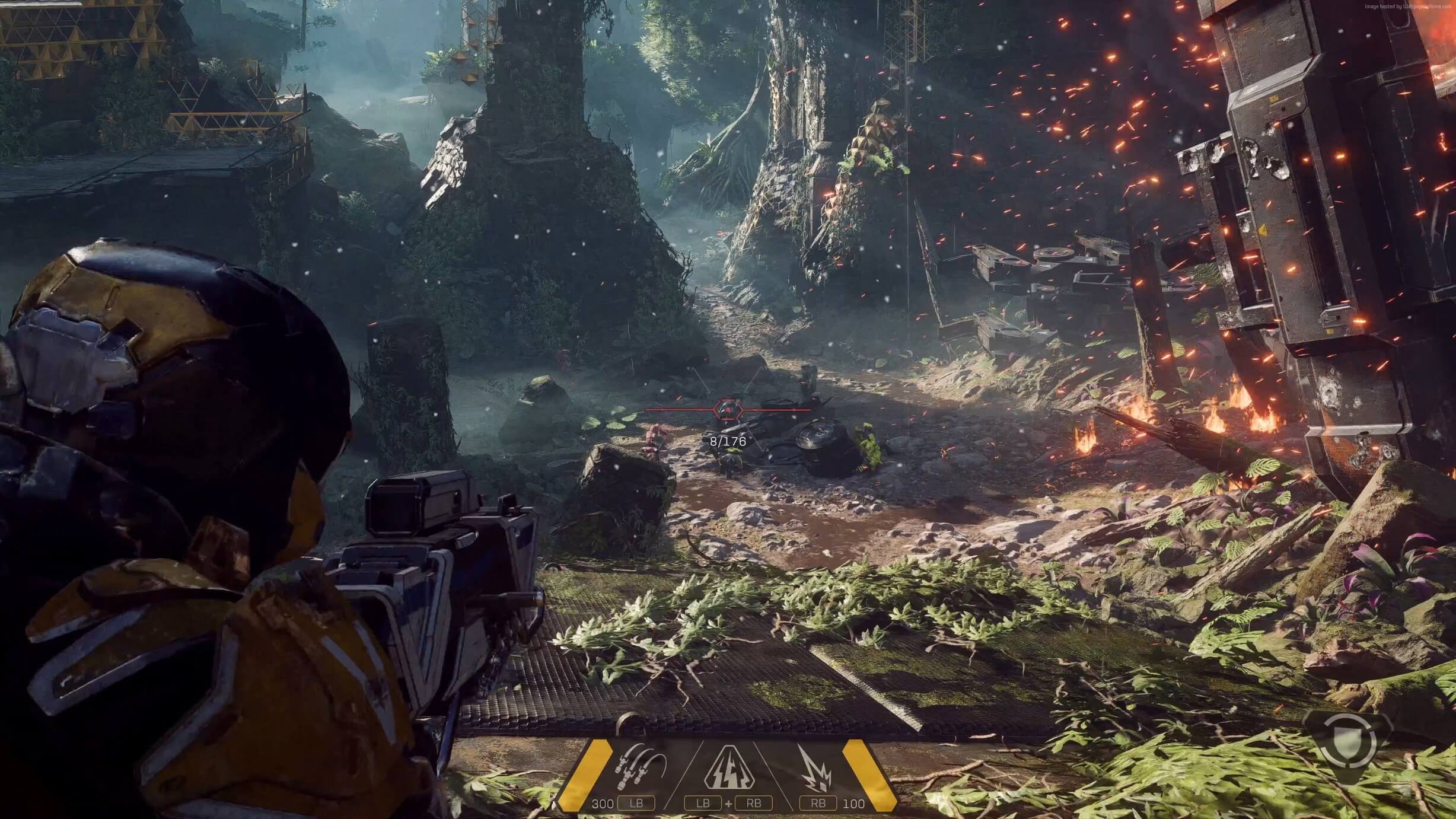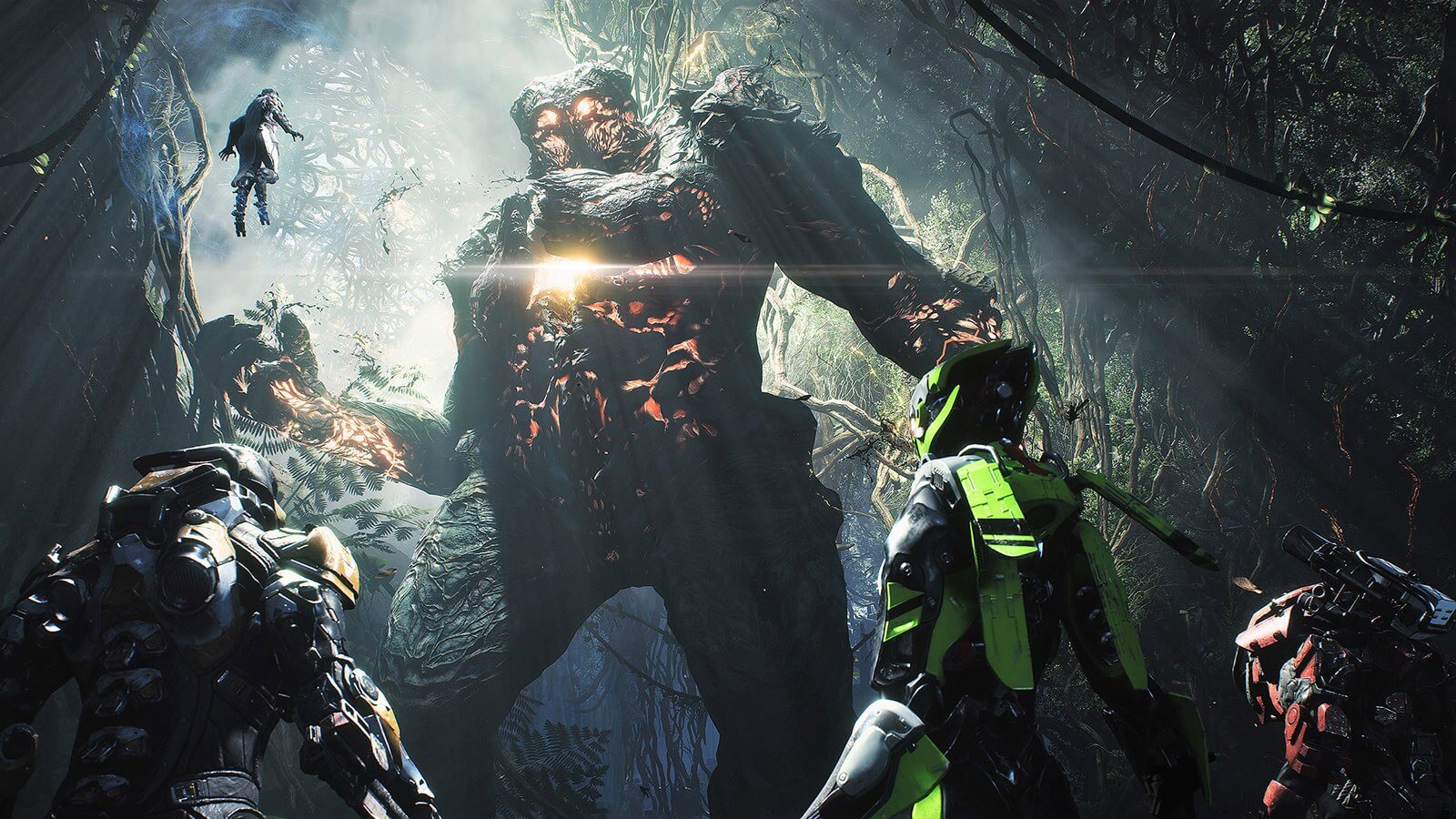Bottom line: Kotaku's Jason Schrier paints a damning picture of Anthem's development. A litany of issues including indecisiveness from upper management, tension between Bioware's different studios, and struggles with the Frostbite engine led to Anthem being panned in reviews and a bevy of player complaints. Bioware's response was PR speak at best and seems tone deaf to the real issues plaguing the studio.
Anthem was supposed to be a literal game changer. This was BioWare's chance to put their unique RPG spin on the growing "looter-shooter" genre that was popularized by Destiny and The Division. Unfortunately, the February launch of Anthem was fraught with bugs, long loading screens, disconnects, sub-par story, and anemic loot mechanics. Kotaku's Jason Schreier released a scathing account of the six year development of a game that literally only came together during the last 18 months.
Schreier, who's renown for his long exposés, interviewed 19 anonymous people who either worked on the game directly or who were close to development. These people recount stories of gross mismanagement and struggles with the Frostbite engine. Ironically, BioWare's parent company Electronic Arts wasn't the primary antagonist.
According to Schrier, Anthem was drastically different in the beginning stages.
One concept that quickly emerged was the idea of a dangerous, hazard-filled planet. Anthem would be set on a hostile alien world, and in order to go out into the wilderness, you'd need a robot suit. A realistic, NASA-inspired robot suit. The pitch was simple: Iron Man, but less cartoony. Over the months, a core concept started to crystallize: Anthem's planet would be sort of like the Bermuda Triangle of this universe, with an inexorable gravity that was constantly pulling in alien ships and hazards. As a result, the world would be lethal and full of dangerous creatures. "You are the bottom of the food chain, and everything is significantly more powerful than you," said one person who worked on the game. When describing these early iterations of Anthem, developers have made comparisons to Dark Souls, Darkest Dungeon, even Shadow of the Colossus. There would be big, scary creatures out in the world, and your job would be to see how long you could survive. One prototype allowed the player to attach themselves to a giant monster; others centered on the atmosphere, the weather, and environmental effects.
Early prototypes seemed promising, however, trying to implement all of the ambitious dynamic systems on the Frostbite engine, developed by EA-owned Dice, was challenging to say the least. Frostbite was originally meant for first person shooters and simply was not flexible enough to handle all of the environmental features that early Anthem prototypes had.
Part of the trouble was you could do enough in the engine to hack it to show what was possible, but then to get the investment behind it to get it actually done took a lot longer, and in some cases you'd run into a brick wall. Then you'd realize, 'Oh my god, we can do this only if we reinvent the wheel, which is going to take too long.' It was sometimes difficult to know when to cut and run
One reason for using Frostbite was because theoretically, development studios could share knowledge and use a common platform for all of the games. It would also keep EA from paying licensing fees to use third-party game engines. The problem is that EA prioritized their Frostbite support team only to games that made the most money, namely the FIFA and Madden franchises. BioWare was often left to fend for themselves in order to figure out Frostbite.
By far the biggest hindrance to Anthem's development was poor management and indecisiveness by the game producers and directors. Schrier writes that whenever creative decisions were being made, nobody stepped forward to actually make a decision which would leave everyone confused as to what was happening. When decisions were made, it would often take weeks or months to implement them.

This was partly because of the departure of long time BioWare creative director, Casey Hudson. Bioware employees likened Hudson to Jean-Luc Picard from Star Trek where he would be "laser focused" on what direction the team needed to go. After he left, that iron-clad direction was lost. Hudson eventually came back onboard but the damage had been done.
On top of leadership issues, there was the tension between BioWare Austin (who made Star Wars: The Old Republic) and BioWare Edmonton, the primary location.
Developers who worked both in Austin and Edmonton say the messaging was that Edmonton would come up with the vision and Austin would execute on it, which caused tension between the two studios. BioWare Austin developers recall offering feedback only to get dismissed or ignored by BioWare Edmonton's senior leadership team, a process that was particularly frustrating for those who had already shipped a big online game, Star Wars: The Old Republic, and learned from its mistakes. One developer described it as a culture clash between a group of developers in Edmonton who were used to making single-player box product games and a group of developers in Austin who knew how to make online service games.
Finally, the lack of direction and general instability of what the game was about caused mental health issues for many employees. Workers had to take "stress leave" for weeks or months at a time to deal with depression and anxiety. One developer noted that "depression and anxiety are an epidemic within BioWare." Others had mental breakdowns and resigned from their position.
There is much, much more that Jason Schrier reveals and it's a very sobering look into a developer that previously garnered a lot of respect in the gaming community due to the success of the Dragon Age and Mass Effect franchises. It seems that respect is waning fast with the failures of Mass Effect: Andromeda in 2017 and now Anthem.
For its part, EA and BioWare posted a three paragraph blog post that went live just minutes after the Kotaku article went up. While Schrier did send bullet points to BioWare for comment, they did not see the actual article before it was posted.
As a studio and a team, we accept all criticisms that will come our way for the games we make, especially from our players. The creative process is often difficult. The struggles and challenges of making video games are very real. But the reward of putting something we created into the hands of our players is amazing. People in this industry put so much passion and energy into making something fun. We don't see the value in tearing down one another, or one another's work. We don't believe articles that do that are making our industry and craft better.
Feel free to judge for yourself but the post seems tone deaf to what Schrier actually wrote. He didn't "tear down" any of the developers or even BioWare itself. The article seemed to just place a spotlight on the many issues that lead to the downfall of Anthem. If anything, the article is a lesson in how not to develop games. As a huge Mass Effect fan myself, I hope that BioWare learns from their past two failures and changes the culture of development.
